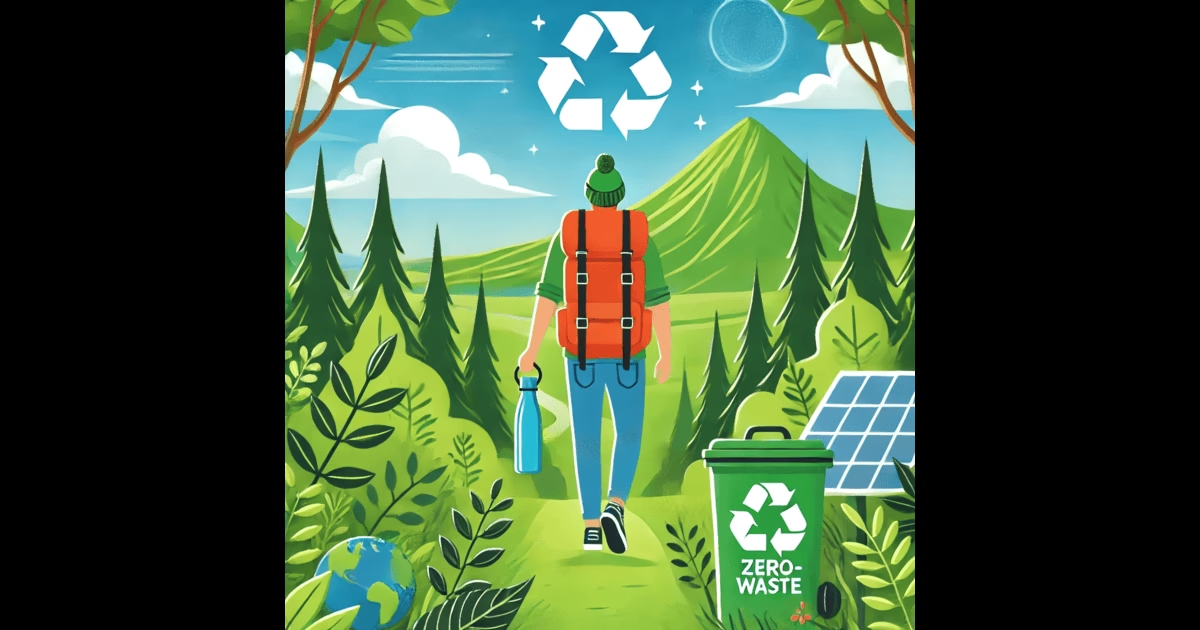Zero-waste travel is about minimizing your environmental impact by reducing waste at every stage of your journey. This approach prioritizes eco-friendly practices, from packing reusable items to choosing sustainable accommodations and supporting local, environmentally conscious businesses. The goal is to leave no trace while enjoying meaningful travel experiences.
Why Zero-Waste Travel Matters
The travel and tourism industry significantly contributes to global waste production, from single-use plastics on flights to disposable packaging at hotels. By adopting zero-waste practices, travelers can:
- Reduce the amount of non-biodegradable waste ending up in landfills and oceans.
- Contribute to cleaner, healthier destinations.
- Inspire others to adopt sustainable practices.
Tips for Planning a Zero-Waste Journey
- Pack Wisely
- Bring reusable essentials like water bottles, utensils, straws, and shopping bags.
- Opt for solid toiletries (e.g., shampoo bars) to eliminate plastic packaging.
- Choose multi-functional clothing to minimize luggage size and weight.
- Choose Sustainable Transportation
- Use public transport, bike rentals, or carpooling services instead of individual cars.
- Opt for direct flights to reduce your carbon footprint or consider alternative travel methods like trains and buses.
- Offset your travel emissions through credible carbon offset programs.
- Stay at Eco-Friendly Accommodations
- Look for hotels or rentals with green certifications such as LEED or Green Globe.
- Support businesses that use renewable energy, recycle waste, and reduce water consumption.
- Be Mindful of Food Choices
- Carry your own reusable containers for takeout or leftovers.
- Dine at local restaurants that prioritize organic, farm-to-table, or zero-waste cooking.
- Avoid single-use packaging by shopping at local markets and bringing your own bags.
- Respect Local Ecosystems
- Avoid littering and pick up any waste you find during hikes or outdoor activities.
- Follow designated trails and respect wildlife habitats.
- Support local conservation initiatives and eco-tourism activities.
Benefits of Zero-Waste Travel
Traveling with a zero-waste mindset not only benefits the environment but also enriches your journey:
- Cost Savings: By reusing items and avoiding disposable goods, you’ll save money in the long run.
- Meaningful Connections: Supporting local businesses fosters connections with communities and cultures.
- Healthier Choices: Emphasizing sustainability often aligns with healthier habits, such as consuming fresh, local foods and reducing exposure to harmful plastics.
Challenges and How to Overcome Them
While the idea of zero-waste travel is inspiring, it can be challenging:
- Limited Options: Not all destinations have robust recycling or waste management systems. Plan ahead and research facilities at your destination.
- Convenience vs. Commitment: Single-use items may seem easier, but staying committed to your principles can lead to more rewarding experiences.
- Awareness Gap: Educating others about sustainable practices can be difficult but rewarding. Share your journey to inspire change.
The Future of Travel is Sustainable
As more travelers adopt zero-waste practices, the tourism industry is starting to respond. Airlines are reducing single-use plastics, hotels are implementing greener policies, and eco-tourism is on the rise. By choosing sustainable travel, you’re not only preserving the planet but also influencing the industry to prioritize sustainability.
Conclusion
Zero-waste travel is not just a trend; it’s a movement that empowers individuals to make a positive impact while exploring the world. With mindful planning, a commitment to reducing waste, and a passion for sustainability, you can embark on journeys that honor the beauty of our planet without harming it. So pack your reusable gear, plan thoughtfully, and embrace the adventure of zero-waste travel. The planet will thank you.


